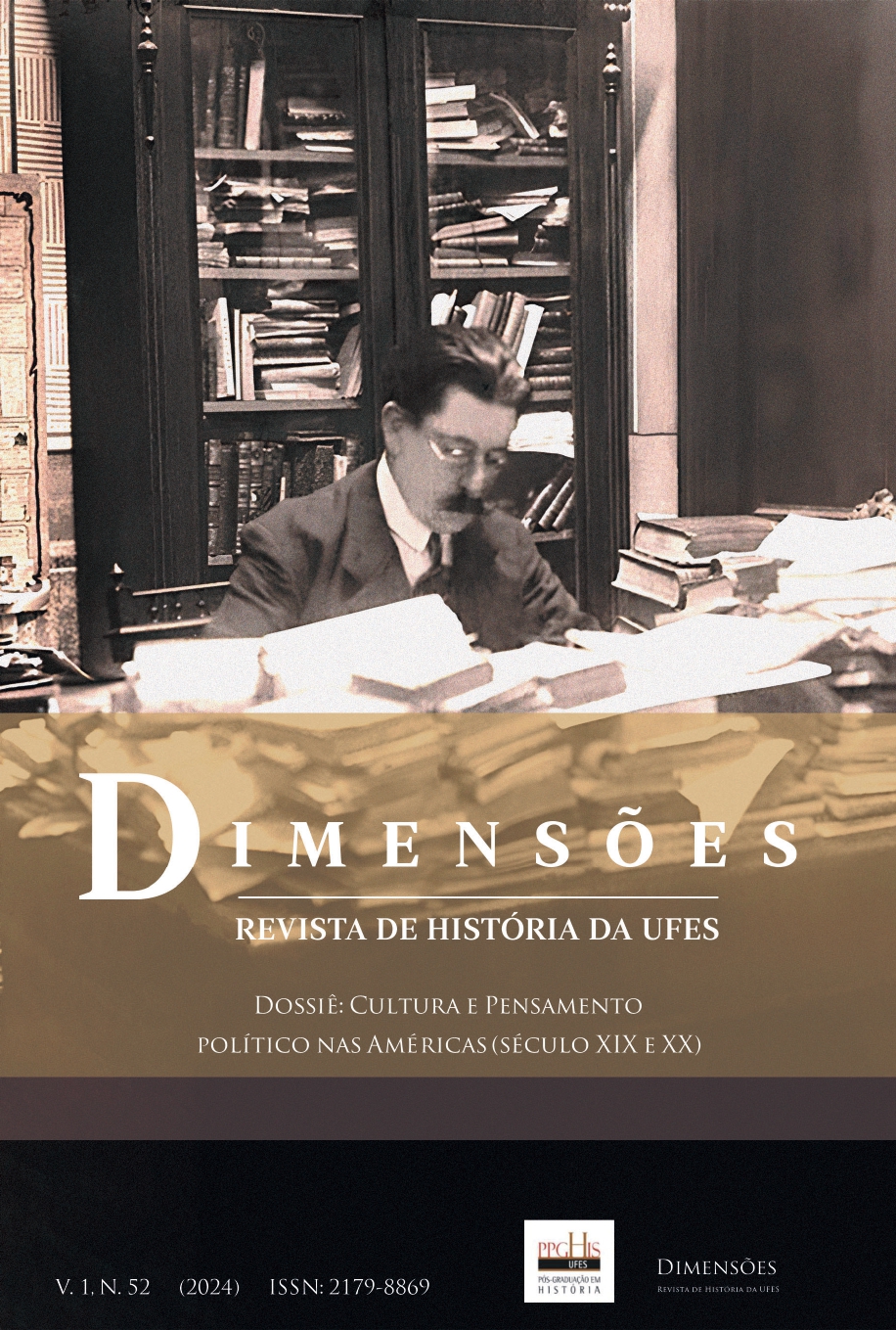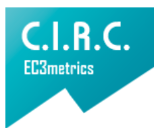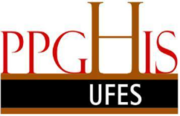Alimentar pessoas para matar o comunismo de fome
o auxílio técnico estrangeiro como parte da política de segurança nacional dos Estados Unidos (1949-1952)
DOI:
https://doi.org/10.47456/dim.v52i1.43557Keywords:
Auxílio técnico, segurança nacional, Guerra FriaAbstract
Este artigo investiga a relação entre os programas de auxílio técnico destinados a países periféricos e os objetivos de segurança nacional de Washington em plena Guerra Fria. Analisando relatórios do programa Ponto IV, atas do Congresso e memorandos diplomáticos dos EUA, constatamos uma expansão da noção de segurança nacional que passava a considerar, para além da agenda militar, a intervenção no desenvolvimento de países periféricos como meio de conservação da paz. Conforme postulado por oficiais e policymakers, a exportação de conhecimento técnico, em favor do capitalismo liberal estadunidense, se tornou uma importante demanda de segurança que merecia atenção.
Downloads
References
ANDERSON, Perry. A política externa norte-americana e seus teóricos. Trad Georges Kormikiaris. 1 ed. São Paulo: Boitempo, 2015.
BRANDS, H.W. The Idea of the National Interest. In: HOGAN, Michael J. (org.). The Ambiguous Legacy. U.S. Foreign relations in the ‘American Century’. Cambrigde: Cambridge University Press, 1999.
CUMINGS, Bruce. The American Century and the Third World. In: HOGAN, Michael J. (org.). The Ambiguous Legacy. U.S. Foreign relations in the ‘American Century’. Cambrigde: Cambridge University Press, 1999.
EKBLADTH, David. The Great American Mission: Modernization and the Construction of an American World Order. New Jersey: Princeton University Press, 2010.
ESCOBAR, Arturo. Encountering development: the making and the unmaking of the Third World. Princeton: Princeton University Press, 1995.
GEORGE Kennan's 'Long Telegram', February 22, 1946, History and Public Policy Program Digital Archive, National Archives and Records Administration, Department of State Records (Record Group 59), Central Decimal File, 1945-1949, 861.00/2-2246; reprinted in US Department of State, ed., Foreign Relations of the United States, 1946, Volume VI, Eastern Europe; The Soviet Union (Washington, DC: United States Government Printing Office, 1969), p.15.
HOGAN. Michael J. A Cross of Iron. Harry Truman and the Origins of the National Security State, 1945-1954. Cambridge, UK: Cambridge University Press, 2007.
INTERNATIONAL DEVELOPMENT ADVISORY BOARD. Summary of Discussions: Pacific Coast Conference on Private in International Development. San Francisco, September 24‐ 25, 1952, p. 8.
KENNAN, George F. The Sources of Soviet Conduct. Foreign Affairs, julho, 1947, n.p. Disponível em: https://www.foreignaffairs.com/russian-federation/george-kennan-sources-soviet-conduct. Acesso em 04/08/2020.
LaFEBER, Walter. The Tension between Democracy and Capitalism during the American Century. In: HOGAN, Michael J. (org.). The Ambiguous Legacy. U.S. Foreign relations in the ‘American Century’. Cambrigde: Cambridge University Press, 1999.
LATTIMORE, Owen. Point Four and the Third Countries.The Annals of American Academy of Political and Social Science, vol 270, issue 1, July 1950, pp.1-7. Disponível em: https://journals.sagepub.com/doi/10.1177/000271625027000102 . Acesso em 24 ago. 2020.
LEFFLER, Melvin P.; PAINTER, David S. (ed.). Origins of the Cold War: an International History. London and New York: Routledge, 1994.
LEFFLER, Melvyn ; WESTAD, Odd Arne (ed). The Cambridge History of the Cold War. New York: Cambridge University Press, 2010. 3v.
MUNHOZ, Sidnei J. George Frost Kenan e a arquitetura da política externa dos EUA na gênese da Guerra Fria. In: Revista Diálogos, Maringá, v. 22, n.1, jan-abr 2018, pp. 26-43.
MUTUAL SECURITY ACT OF 1951. Hearings before the Committee on Foreign Relations and the Committee on Armed Services. United States Senate, Eighty Second Congress, First Session, jul-ago, 1951. Disponível em: https://babel.hathitrust.org/cgi/pt?id=umn.31951d020946037&view=1up&seq=5 . Acesso em 15/01/2020.
NATIONAL Security Council Report, NSC 68, 'United States Objectives and Programs for National Security',” April 14, 1950. History and Public Policy Program Digital Archive, US National Archives. Disponível em: http://digitalarchive.wilsoncenter.org/document/116191 . Acesso em: 30/03/ 2020.
OFFNER, Arnold A. Provincialism and Confrontation: Truman’s Responsability. In: MERRIL, Dennis; PATERSON, Thomas G (ed.). Major Problems in American Foreign Relations. vol 2. 7 ed. United States, CA: Wadsworth, 2010.
PACKENHAM, Robert A. Liberal America and the Third World. Princeton: Princeton University Press, 2015. Disponível em: https://muse.jhu.edu . Acesso em 17/09/2018.
PATERSON, Thomas G. Meeting the Communist Threat. Truman to Reagan. Oxford/New York: Oxford University Press, 1988.
RIST, Gilbert. The History of Development: from Western origins to global faith. Londres & Nova York: Zed Books, 2008.
ROSE, John K. Needs and resources of he Brave New World. The Annals of American Academy of Political and Social Science, vol. 268, Mar, 1950, pp. 9-21. Disponível em: https://www.jstor.org/stable/1027890 . Acesso em 24 ago. 2020.
SPALDING, Elizabeth Edwards. The first Cold Warrior: Harry Truman, Containment, and the remaking of liberal internationalism. Kentucky: The University Press of Kentucky, 2006.
TRUMAN, HARRY. The Truman Doctrine call for aid to Greece and Turkey to contain totalitarianism,1947. In: MERRIL, Dennis; PATERSON, Thomas G (ed.). Major Problems in American Foreign Relations. vol 2. 7 ed. United States, CA: Wadsworth, 2010.

Downloads
Published
Issue
Section
License
Os autores mantém os direitos autorais das ideias contidas nos trabalhos e concedem à revista o direito de publicação. Os autores têm autorização para assumir contratos adicionais separadamente, para distribuição não-exclusiva da versão do trabalho publicada nesta revista (ex.: publicar em repositório institucional ou como capítulo de livro), com reconhecimento de autoria e publicação inicial nesta revista.
Os textos da revista estão licenciados com uma Licença Creative Commons Atribuição-NãoComercial-SemDerivações 4.0 Internacional (CC BY-NC-ND).






